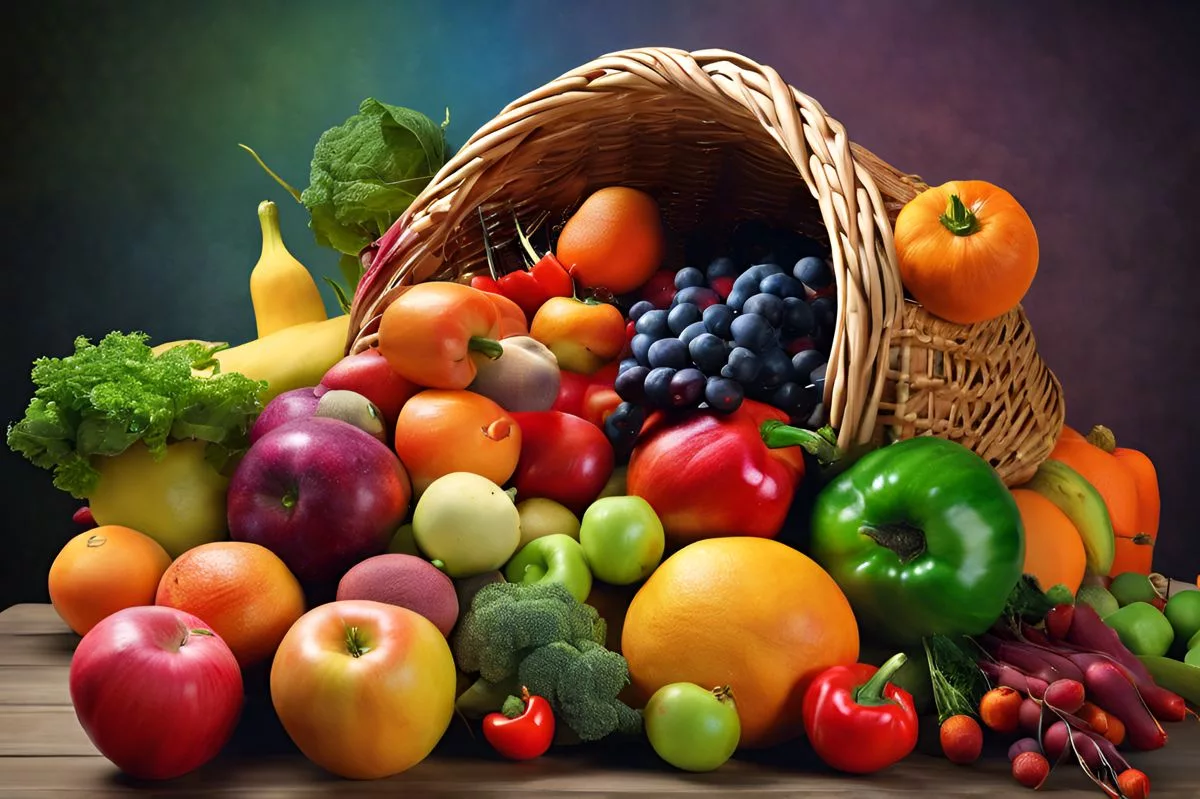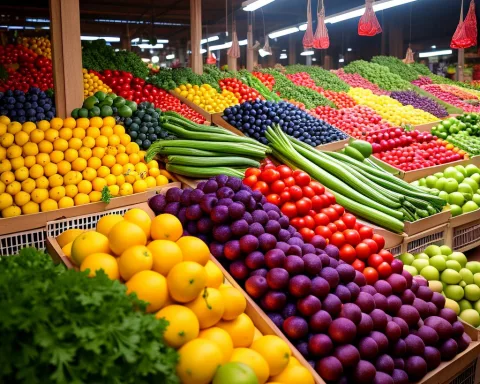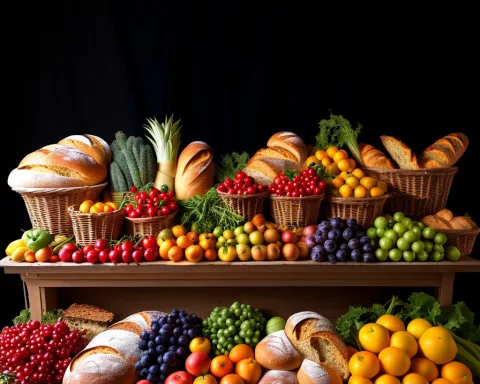South Africa is fighting the food waste crisis with creative community projects, education, and new policies. Even though the country produces a lot of food, nearly a third is wasted while many people still face hunger. This waste not only harms the environment but also deepens social divides. To tackle this problem, South Africa is encouraging smarter food use, better distribution, and a shift in how people think about food. By working together, the nation hopes to reduce waste and ensure everyone has enough to eat.
How is South Africa addressing the food waste crisis?
South Africa is tackling food waste through innovative community initiatives, education on sustainable consumption, and policy reforms aimed at reducing environmental impacts. By improving food distribution and fostering a shift in societal attitudes towards food, the country aims to minimize waste and enhance food security for all.
Understanding the Magnitude of Food Waste
South Africa grapples with a deeply troubling issue: despite abundant food production, a significant amount goes to waste. This contradiction exists alongside a stark reality where over half of the population lives in poverty. The consequences of food waste extend beyond mere loss, fueling food insecurity and burdening the country’s environmental resources. The recent Impact Summit 2024 in Johannesburg became a crucial gathering for experts to explore the multifaceted nature of food waste and strategize sustainable solutions.
Andy du Plessis, managing director of Food Forward SA, paints a vivid picture of this paradox. In a nation capable of producing 31 million tons of food annually, nearly a third remains uneaten. Du Plessis strongly believes that no South African should face hunger with such an abundance of potential nourishment. Unfortunately, this waste not only compounds food insecurity but also exacerbates the climate crisis, highlighting the urgent need for smarter food resource management.
Mamogala Musekene, deputy director-general of chemical and waste management at the Department of Forestry, Fisheries and Environment, adds another layer to this understanding. She points out that significant food loss occurs primarily in sugar crops, cereals, and fresh produce. Internationally, around 13.2% of food is lost from harvest to retail, with household and service sector wastage adding another 19%. Though not unique to South Africa, these statistics reveal a sobering potential: the wasted food could feed 40 million people, underscoring inefficiencies within the current food systems.
Environmental Impacts of Food Waste
The environmental implications of food waste compound the urgency of the issue. Pavitray Pillay, an Environmental Behaviour Change Practitioner at WWF South Africa, emphasizes the recklessness of squandering food in a region with limited water resources. The production of staples like milk and meat demands substantial water; for example, discarding one litre of milk wastes 720 litres of water—equivalent to six full baths. A single wasted steak bite equates to the water usage of running a household dishwasher 22 times. These numbers make a compelling case for a shift toward more conscientious consumption.
Beyond water misuse, energy and human effort invested in food production are squandered when food goes uneaten. Continuous crop cultivation without appropriate soil management depletes nutrients, degrading soil health. Wasted food contributes 8 to 10% of global greenhouse gas emissions, significantly impacting climate change. Pillay’s insights into living beyond our planetary means highlight the unsustainable path of current practices. As food waste drives up costs, it becomes less accessible for many South Africans, deepening social and economic divides.
Strategies for Reducing Food Waste
Addressing food waste necessitates a comprehensive approach involving innovative solutions and community-driven initiatives. A shift in how society views and uses food is crucial, with education playing a pivotal role in altering consumer behaviors. This involves fostering a culture that values sustainable consumption and prioritizes waste reduction. By integrating technology, food distribution can become more efficient, ensuring surplus reaches those in need rather than ending up in landfills.
Policy reforms can further promote sustainable practices, encouraging businesses to mitigate the environmental impact of food production and distribution. Historical and artistic movements provide valuable lessons; for instance, the conservation ethos of the Arts and Crafts movement promotes resource appreciation and craftsmanship. Similarly, the efficiency-focused principles of the Bauhaus movement can inform the design of sustainable food systems.
Drawing from these influences, society can cultivate a holistic appreciation for food, recognizing its environmental, social, and economic significance. This shift is essential to champion a sustainable future where food waste is minimized, and resources are equitably distributed. Collaborative efforts across sectors are necessary to harness expertise and innovation, driving meaningful change.
Charting a Sustainable Path Forward
The narrative of food waste in South Africa intricately weaves together issues of social equity, environmental stewardship, and economic sustainability. Informed discourse and actionable strategies offer a path forward, enabling the transformation of food systems to benefit both people and the planet. Insights gathered at the Impact Summit 2024 illuminate the way, promoting a nationwide commitment to reducing food waste and fostering a sustainable future for all South Africans.
By confronting this challenge head-on, South Africa can pave the way for more resilient food systems. The journey entails not only addressing the immediate waste but also building a society that values nourishment as a precious resource, integral to both individual well-being and the health of the planet. Through collaboration, innovation, and a shared vision for the future, South Africa can turn the tide on food waste, ensuring a brighter, more equitable future for all its citizens.
FAQ on Addressing the Food Waste Crisis in South Africa
How is South Africa addressing the food waste crisis?
South Africa is tackling the food waste crisis through innovative community initiatives, educational programs focused on sustainable consumption, and policy reforms aimed at reducing environmental impacts. By improving food distribution and fostering a cultural shift towards valuing food, the country aims to minimize waste and enhance food security for all citizens.
What are the statistics regarding food waste in South Africa?
Despite producing over 31 million tons of food annually, nearly a third goes to waste. This waste could potentially feed around 40 million people. As noted by experts, significant losses occur primarily in sugar crops, cereals, and fresh produce, with both the harvest-to-retail and household wastage contributing to the crisis.
What are the environmental impacts of food waste?
Food waste has severe environmental implications, contributing to 8-10% of global greenhouse gas emissions. In South Africa, discarding food wastes not only the food itself but also the water and energy used in its production. For example, wasting one liter of milk can lead to the loss of 720 liters of water, emphasizing the urgent need for more conscientious consumption habits.
How can communities help reduce food waste?
Communities can play a vital role in reducing food waste through awareness campaigns, food sharing initiatives, and educational programs that promote sustainable consumption practices. Encouraging a culture that values food and prioritizes waste reduction can make a significant difference in tackling the food waste crisis.
What role do policies play in reducing food waste?
Policy reforms are crucial in promoting sustainable practices across the food production and distribution sectors. By encouraging businesses to adopt measures that mitigate environmental impacts, policies can help streamline food distribution, ensuring surplus food reaches those in need rather than ending up in landfills.
How can individuals contribute to minimizing food waste?
Individuals can contribute by adopting mindful consumption habits, such as planning meals, buying only what is needed, and using leftovers creatively. Educating oneself about the importance of food conservation and participating in community initiatives can further empower consumers to play an active role in combatting food waste.












